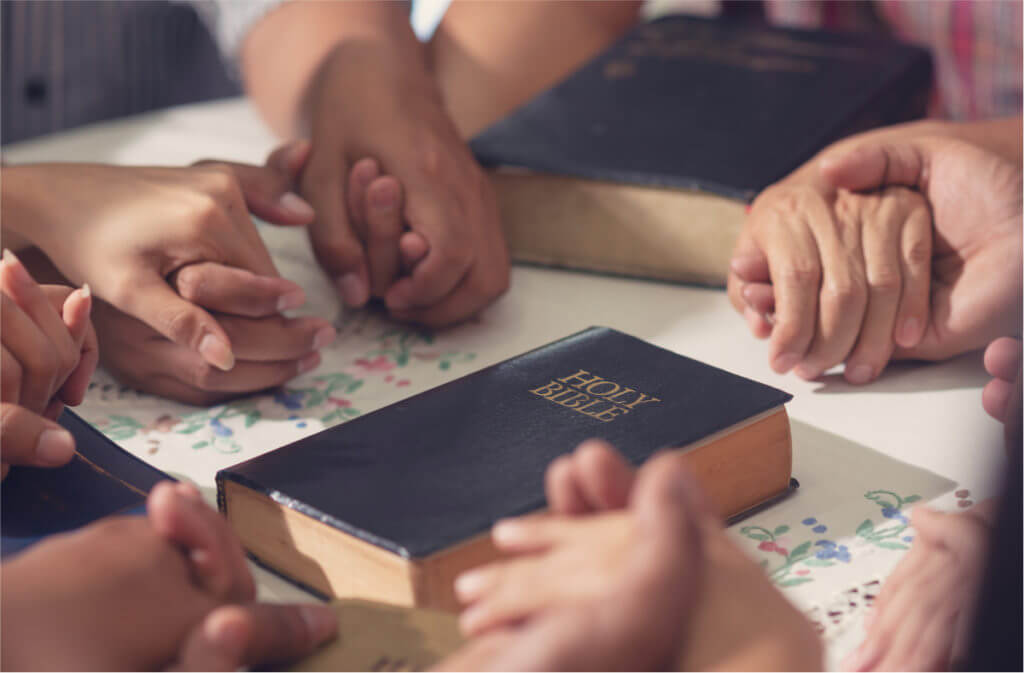This six-part series of articles is based on one of the most helpful bits of information about church revitalization that I learned at one of the many conferences I have attended over the years is. It is that “when God wants to revitalize a church he takes them through 5 types of renewal. These NEVER happen out of order.” That’s a pretty bold statement but I’ve found it to be true. The five types of renewal are: 1. Personal Renewal, 2. Relational Renewal, 3. Missional Renewal, 4. Structural Renewal, and 5. Cultural Renewal.
In this article I want to address the second renewal, Relational Renewal, which comes right from Jesus’ Great Commandment: “Love the Lord your God with all your heart and with all your soul and with all your mind. This is the first and greatest commandment. And the second is like it: Love your neighbor as yourself.” (Matthew 22:37-39) Loving others, especially our brothers and sisters in Christ, is pretty high on the priority list for living in God’s Kingdom. Just look at this small sample from God’s Word:
Jesus: “So now I am giving you a new commandment: Love each other. Just as I have loved you, you should love each other. Your love for one another will prove to the world that you are my disciples.” John 13:34-35
Owe nothing to anyone—except for your obligation to love one another. If you love your neighbor, you will fulfill the requirements of God’s law. Romans 13:8
And may the Lord make your love for one another and for all people grow and overflow, just as our love for you overflows. 1 Thessalonians 3:12
And this is his commandment: We must believe in the name of his Son, Jesus Christ, and love one another, just as he commanded us. 1 John 3:23
Dear friends, let us continue to love one another, for love comes from God. Anyone who loves is a child of God and knows God. 1 John 4:7
Love means doing what God has commanded us, and he has commanded us to love one another, just as you heard from the beginning. 2 John 1:6
If your church is not obedient to this commandment by Jesus and there is not a genuine love for one another among you, then why would he bless your church with growth? Why would non-believers even want to come? If, however, out of an overflow of God’s love experienced from the first renewal (personal renewal), your church has a real love for each other, then you will experience the kind of relational renewal that will lead to revitalization.
This is a much longer topic than one article can cover, so here are just two obstacles to loving one another and two ways to facilitate genuine love for one another in your congregation.
Two Obstacles to Loving One Another to Avoid Personally
1. Making the Defense of Biblical Truth be at Odds With Love. Maybe I’m the only Anglican who has dealt with this, but on the chance I’m not, I’m putting this out there. For many years, while rightly defending Biblical truth, I became defensive against all the talk of love out there in the church. I think because people who change what the Bible says about sexual standards tend to use “love” to justify those changes, I feared by embracing love too much I would be labeled a “theological revisionist” or even worse, actually slip down the slippery slope to becoming one! Now, of course I would talk about loving one another because it’s in the Bible, but deep down I was more comfortable focusing on other matters. Once I became aware of this internal conflict in me, I was able to realize that by not fully embracing Jesus’ command to love, I was not actually practicing the Biblical truth I was defending! Defending Biblical truth and truly loving others are not in conflict. We can do both! Jesus did.
A church full of people focused on Biblical truth but who do not love one another won’t have the kind of relational renewal that will bring about revitalization. It’s like what Paul was saying in 1 Corinthians 13:2, “If I had the gift of prophecy, and if I understood all of God’s secret plans and possessed all knowledge, and if I had such faith that I could move mountains, but didn’t love others, I would be nothing.” So be on your guard against any fears you may have that would prevent you from fully embracing Jesus’ command to love others.
2. Making Rituals More Important Than Relationships. As Anglicans, we love liturgy and ritual, as we should. However, if being Anglican becomes more about the rituals and not about our relationship with God and one another, then we’ve missed something important. If the Apostle Paul were writing in 1 Corinthians 13:1 to Anglicans, he might have written something like, “If I could have the perfect liturgy, with the perfect choir, and everything done exactly right, ‘but didn’t love others, I would only be a noisy gong or a clanging cymbal.’”
Now, I realize I may have just gone from “preaching to meddling” as the saying goes; however, to have a revitalized, healthy, growing Anglican church, the main thing must remain the main thing. And the main thing is Jesus’ Great Commandment to love God and love your neighbor. So be on your guard against letting right rites, which are important, becoming more important than right relationships.
Two Ways to Facilitate Love For One Another Congregationally
1. Preach & Teach On Loving One Another in Christ. This is basically the same point I made while writing on personal renewal, but it bears repeating. There is a leadership principle that says that you get more of what you focus on. If you focus preaching and teaching on giving, giving will increase. If you focus on serving you’ll see more people serving, and so on. If your congregation needs more relational renewal then take a season, or a year, or however long it takes, and focus on it in sermons and classes and small group studies. Make sure to give “How To” instructions, not just “Ought To” instructions. To this end, teach on what it means to live in the Kingdom of God now on earth. Preach on what Kingdom of God living look like. I recommend referring to Dallas Willard’s materials on this subject. His teaching on the Sermon on the Mount is particularly helpful on how to practice loving one another. I found them on YouTube!
2. Provide Laboratories of Love. The local church, like marriage, is an institution that God gave us to learn to love and be loved. And, as in marriage, in the church we will find it is sometimes difficult to love and be loveable. Have you noticed that people can be very difficult – even followers of Christ? As believers, we are all broken but in the process of being made whole in Christ. And God has provided the local church to be a safe place for us, a hospital for sinners, where we can heal and grow in Christ over time. A significant part of that healing and growth is learning to love one another, especially when it’s hard. So, in this way, the local church is a laboratory to practice love.
To have effective “laboratories to practice love,” unless your congregation has less than a dozen members you will need to provide small group experiences for your congregation. It’s pretty easy to fake being loving in a large group such as the worship service on Sunday mornings where you are mostly listening anyway. It’s much harder to fake it in small groups or ministry teams where your lives interact and feelings get hurt, people disappoint, annoying personalities are exposed (yours and others!), and you have to put love into practice.
Providing small groups not only for study, but as laboratories to practice love takes intentionality from church leaders, but it is worth it for facilitating relational renewal. I often get asked the question of how to get people into small groups. One answer is just one word, “concurrently.” Get a bunch of small groups started at the same time. One of the best ways I have seen to do that is by using church-wide spiritual growth campaigns that bring the whole church into alignment on one theme, usually for six weeks. At my previous church we did a campaign on relational renewal called “40 Days of Community,” which was designed to “deepen the community in your church and reach out to the community around your church.” Groups that formed then are still meeting today over a decade later. You’d better believe those folks have seriously learned to love one another!

Canon Mark Eldredge is the Director of Church Revitalization and Coaching


